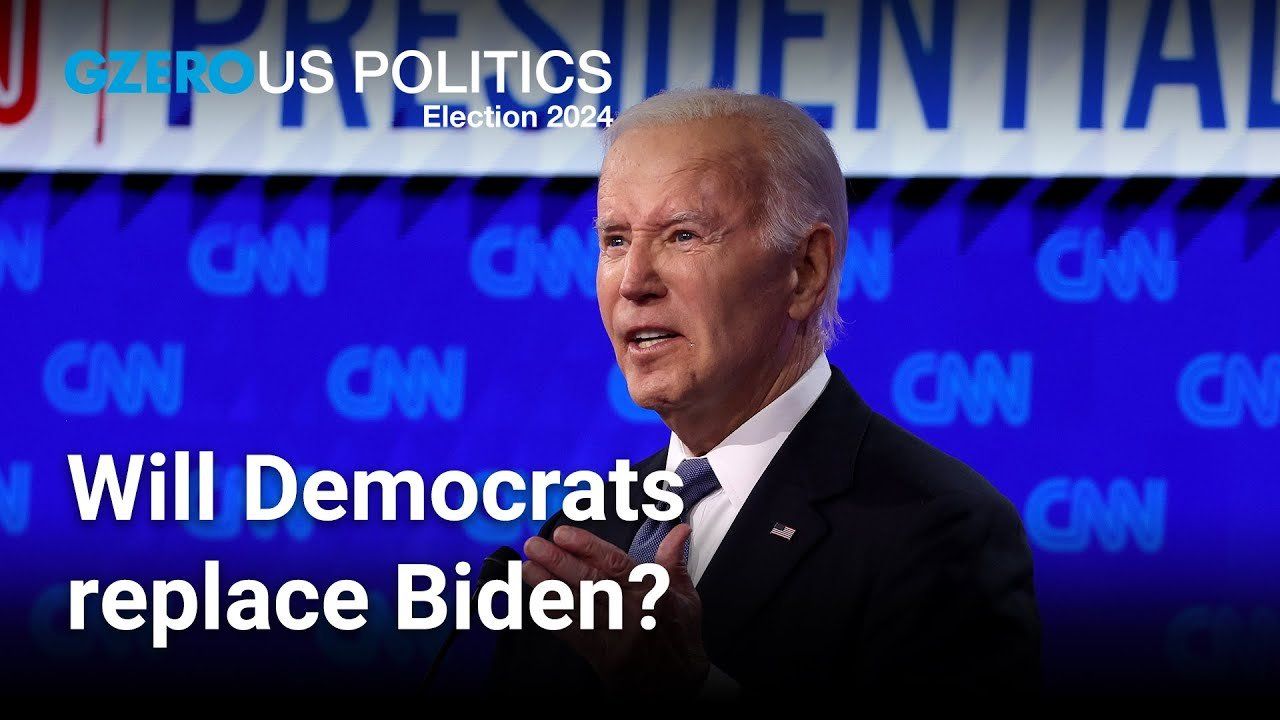US Politics In 60 Seconds
Why replacing Biden would be a challenge

Will Democrats replace Biden? | US Politics

Jon Lieber, Eurasia Group's head of research and managing director for the firm's coverage of United States political and policy developments, shares his perspective on US politics from Washington, DC.
What we're watching in US Politics this week. The big question is, will the Democrats replace Joe Biden after a disastrous debate performance?
Biden was not sharp in Thursday night's debate, seeming every bit of his 81-year-old. Slurring his speech at times, rambling, making confusing comments about what he was going to do to Medicare. And Donald Trump was able to exploit that, having being high energy, his normal blustery self. Biden was unable to push back against any of the outright lies that Trump was telling and was unable to land any punches, even on Biden's best issues, which include Donald Trump's personal character. So now there's a panic setting in among Democrats, and the question is, can they replace Biden and how would they do so?
It's going to be very tough to push aside the sitting president of the United States and leader of the Democratic Party. Probably what has to happen is that Biden himself has to make the choice that he's too old and can't do the job and makes a decision sometime in the next 3 or 4 weeks that he is going to step aside as the presidential candidate the way Lyndon Johnson did in the 60s to help the Democrats avoid a contested convention. In the wake of that, he probably would have to endorse a successor.
The most likely successor is Vice President Kamala Harris, who's the first African-American and first female vice president in US history. But she's not much more popular than Biden is, which leaves him with a number of untested options of sitting governors, including California Governor Gavin Newsom, who did not perform that well in a debate against Ron DeSantis late last year and has the baggage of being a very liberal governor of the most liberal state. And Gretchen Whitmer from Michigan, who has low name recognition among the public but is considered a moderate Democrat in a swing state who can appeal to moderate voters. There's probably other governors that would be in contention, like Governor Pritzker from Chicago, Jared Polis from Colorado, Andy Beshear from Kentucky.
But they also face the challenge of not being very nationally known, not having great fundraising networks, and never having done the grueling challenge of running for president of the United States. When you are under scrutiny 24 hours a day, every aspect of your background is going to be looked into. You've got to be a good retail politician, a good public speaker, and have the ability to consolidate Democrats and tap into the massive fundraising networks that are necessary to run as the president.
So not a lot of great options for Democrats right now. Former President Donald Trump remains ahead in most swing state polls and suggesting he probably should be considered the frontrunner in the race for now. But this question of the pressure that's going to be on Biden over the next several weeks is not going to go away until Biden has a very strong public appearance that makes people less worried about his age. Lots of baggage going into the August conventions for Biden and a real headwind for his campaign.
1,170: The number of high-rise buildings in Kyiv that were left without heating following a barrage of Russian attacks last night on Ukraine’s capital and its energy facilities, per Kyiv Mayor Vitali Klitschko.
U.S. President Donald Trump and Japanese Prime Minister Sanae Takaichi hold up signed documents regarding securing the supply of critical minerals and rare earths, at a bilateral meeting at Akasaka Palace in Tokyo, Japan, October 28, 2025.
Representatives from the European Union, United Kingdom, Japan, and others will meet in Washington this week to discuss a strategic alliance on critical minerals.
80,000: The number of people estimated to be in the streets of Czechia on Sunday to show their support for President Petr Pavel after he blocked the nomination of an environmental minister who performed the Nazi salute and posted Nazi memorabilia.
The US has started handing $1,000 to the bank accounts of newborn babies. But can policies like this one help boost sagging birthrates in advanced democracies?